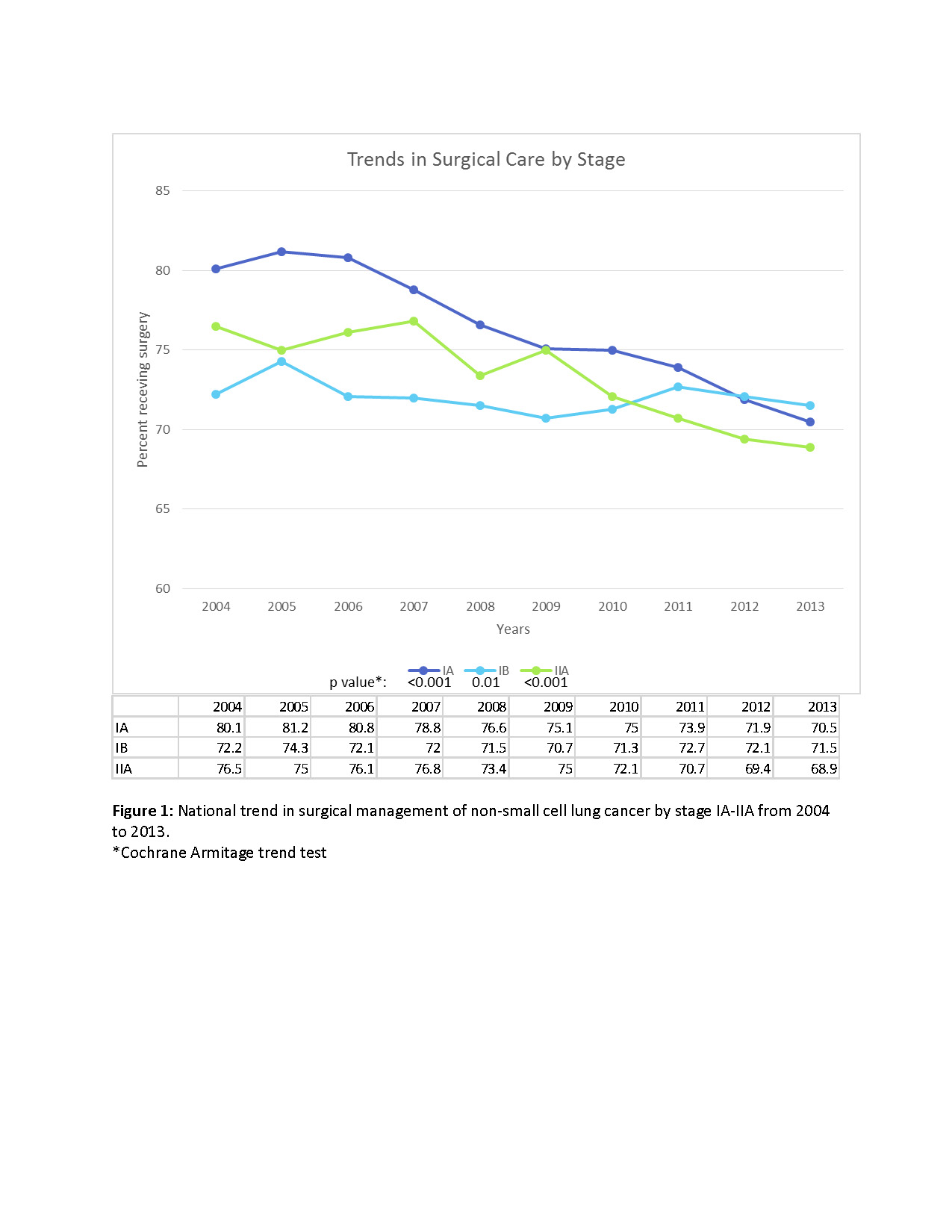Presenting Author:
Kathryn Engelhardt, M.D.
Principal Investigator:
David Odell, M.D.
Department:
Surgery
Keywords:
lung neoplasm, surgery, epidemiology
Location:
Ryan Family Atrium, Robert H. Lurie Medical Research Center
C139 - Clinical
Treatment Trends in Early Stage Lung Cancer, 2004-2013
Objective: While surgery remains the standard of care for resectable non-small cell lung cancer (NSCLC), several competing non-surgical options have become available. However, the impact of these treatment modalities on the proportion of patients receiving surgery is poorly described. To evaluate the trend in the rate of surgical therapy for patients with early stage (IA-IIA) non-small cell lung cancer (NSCLC). Methods: Patients with stage IA to IIA NSCLC diagnosed from January 1, 2004 to December 31, 2013 were identified in the National Cancer Data Base. The Cochrane-Armitage trend test was used to evaluate the change in proportion of patients undergoing surgery over time. We then compared practice patterns for alternate treatment methods. Finally, we built a multivariable logistic regression model to adjust for potential confounding. In this model our main independent variable was year of diagnosis and our outcome was receipt of surgery. Results: Of 195,938 eligible patients from 1,278 hospitals, 74.0% (n=145,066) of patients underwent surgery. For all stages analyzed, the rate of surgery decreased from 76.4% in 2004 to 70.5% in 2013 (p<0.001). Additionally, the rate of surgical therapy decreased for each patient subgroup from 2004 to 2013: stage IA 80.1% to 70.5% (p<0.001); stage IB 72.2% to 71.5% (p=0.01); and stage IIA 76.5% to 68.9% (p<0.001). Overall, in the non-surgical cohort (N=50,872), the most common treatment was radiation (N=33,016; 64.9%), and 26.1% of the nonsurgical cohort did not have any curative treatment (N=13,290). Based on the information available, 19.8% (N=10,085) did not have surgery because it was contraindicated due to patient risk factors, and 5.1% (N=2,616) did not have surgery because the patient or family refused. In our multivariable logistic regression model, year of diagnosis was significantly associated with receiving surgical therapy (p<0.001). Conclusions: From 2004 to 2013, there was an overall decrease in the use of surgical therapy for lung cancer in early stage disease. As resection remains the standard of care for most patients with early stage disease, these data suggest a potentially significant quality gap in the treatment of patients with NSCLC.


